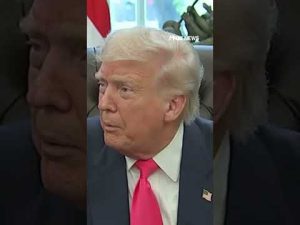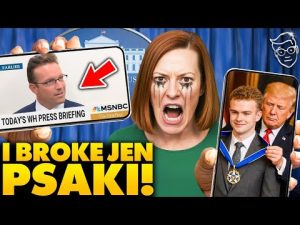The pandemic has exposed a deep rift between the ruling class and ordinary Americans. During the lockdowns, many in positions of power repeatedly assured the public that they knew best. As the country faced school closures, mask mandates, and the swift rollout of vaccines, people were led to believe these measures were in their best interests. Now, with the dust settling, many wonder why those same authorities haven’t apologized for the chaos they caused in our lives. There is a growing frustration that the ruling elite seems oblivious to their lost credibility, especially among young people whose lives were profoundly disrupted.
Instead of acknowledging past mistakes, there is an attempt to move forward as if nothing happened. The American people are being asked to simply trust their leaders again, despite the glaring contradictions that have unfolded. The lack of accountability for the misinformation and failed policies during COVID-19 is driving a wedge between the government and its citizens. It is a troubling thought that those in charge fail to grasp why trust has dramatically eroded—especially when they repeatedly assured the public about matters that now seem dubious.
One striking example lies in the overblown predictions regarding the economy tied to tariffs and trade negotiations. Charlie Kirk recently addressed this on CNBC, insisting that former President Trump’s approach was pragmatic rather than ideological. His use of tariffs as a negotiating tool seemingly worked to bring countries to the table, benefiting the U.S. economy. While progressives alarmed over potential recession painted a dire picture, the reality revealed that the American economy remained resilient. Wages rose, and inflation did not surge drastically as predicted. Yet, the media and elite economists remain largely unassailable, as they fail to acknowledge their miscalculations or the positive outcomes that emerged.
The duality faced by many American citizens—between optimism and skepticism regarding Trump’s administration—reflects a broader confusion amongst the populace. On one hand, there are those who appreciate the economic wins under Trump’s leadership. On the other, there are persistent detractors who refuse to give credit where credit is due. Even within the business community, there are mixed feelings about Trump’s policies. The question of how leaders perceive the President’s economic strategies remains, but it becomes increasingly clear that the ruling class’s reaction to the successes of the administration may reveal their biases and unwillingness to adapt to present circumstances.
Amidst the ongoing discourse, it is critical to understand that a generational shift may be underway. The frustrations of young people experiencing economic hardships could mirror those felt during the 2008 financial crisis. This new political wave, driven by disillusionment with the ruling elite, demands accountability and a reevaluation of past decisions. The pandemic has transformed societal perspectives, creating fertile ground for a populist uprising against a disconnected political class. People are no longer inclined to follow blindly; they demand results, honesty, and real solutions.
In the end, the call for transparency from leaders is undeniable. As America reopens and moves forward, it must reckon with the unaddressed grievances of its citizens. The ruling class cannot expect to regain trust without accountability for their past actions. Acknowledging mistakes is a necessary step in rebuilding the relationship between the government and its people. One cannot help but wonder: will the political elite rise to the occasion or continue to dwell in denial as Americans call for genuine leadership? The future of the nation depends on the latter’s response to this critical juncture.







